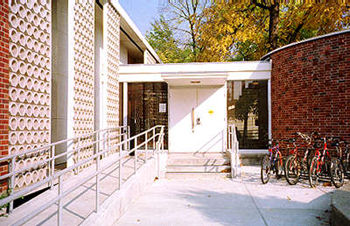| The book is the outgrowth of nearly two years of research on the Web's origins which Marc Weber began at CERN, the Web's birthplace in Geneva, Switzerland, in 1995. | ||
| Research and interviewing has continued in both Europe and the United States, primarily around the World Wide Web Consortium in Boston, NCSA in Illinois, and the cluster of important companies and institutions on the west coast. Writing is well under way, and in-depth interviews with over 80 key sources and dozens of minor ones are complete. |  Tim Berners-Lee. |
|
High points of the Web's history to be chronicled in the book include:
The origins of hypermedia and structured document languages
Tim Berners-Lee's invention of the Web at CERN
Related inventions in hypermedia and networked information (Xanadu, NLS, Hyper-G, Lynx, Gopher, etc.)
The development of Mosaic at NCSA and the Web's subsequent explosion in popularity
The origins and early history of Netscape
Little-known roles of the Clinton White House and the European Commission in using and promoting the Web
Major scenes take place in locations from CERN in Switzerland to Austria, France, Boston, Illinois, San Francisco, and Finland.

The Oil and Chemistry Building at the University of Illinois/Champaign-Urbana campus, where the NCSA's Software Design Group created Mosaic.
An electronic version of the book, including source materials and additional text, is planned to follow the paper version and should eventually be integrated with the Project's digital library.
Marc Weber is the Project editor and main author. Contributing authors are Kevin Hughes and Jenny Raggett.
The current book will be followed by updates or sequels at appropriate intervals. Our goal is to establish a permanent process for recording and disseminating the ongoing history of the Web and networked information, in as close to real time as possible. Much of our work on the Project has been clearing up the six years worth of myths and half-truths which have accumulated around the Web's origins, precisely because there was no definitive history. We want to make it easier next time!